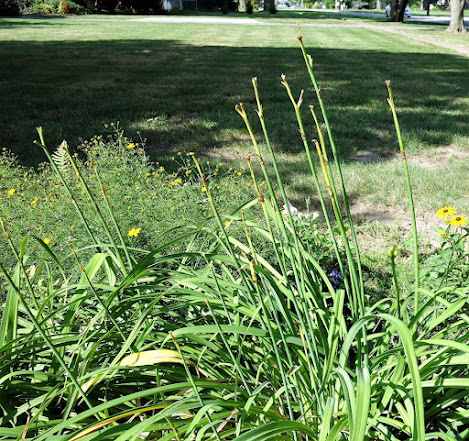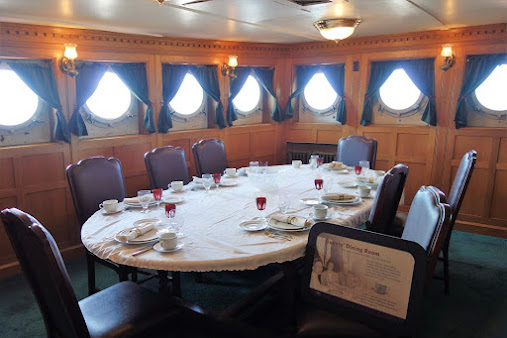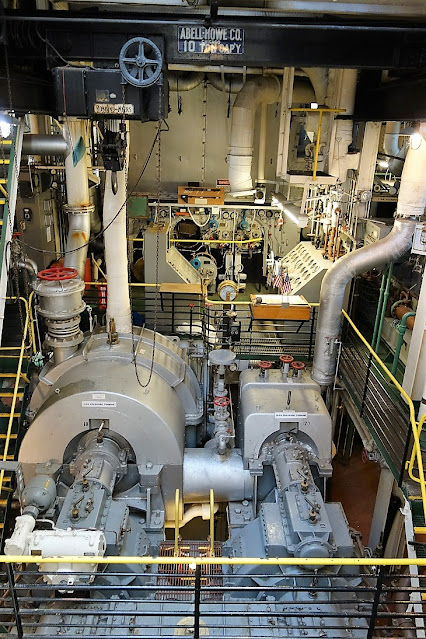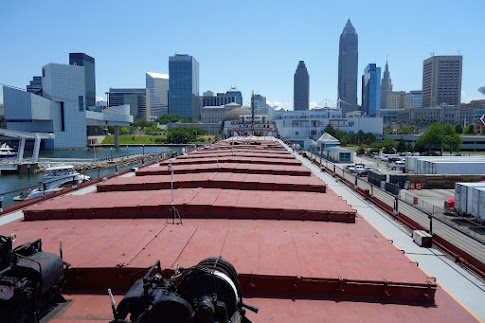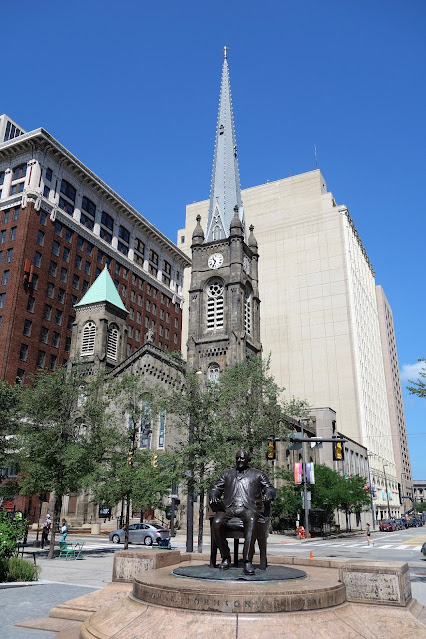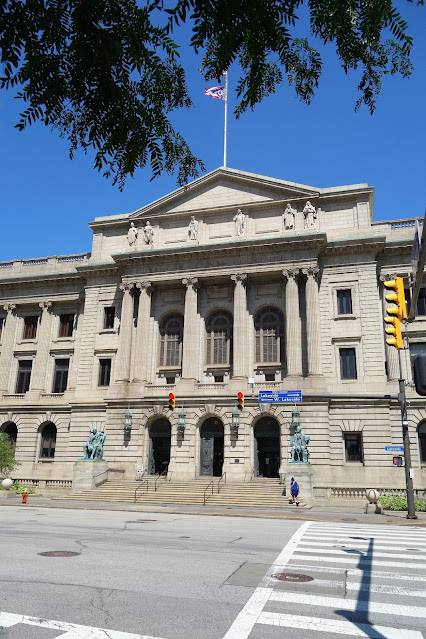Like most suburban residents, I rarely go to downtown Cleveland. However, I needed to get some documents from Cleveland City Hall. So yesterday I drove to the Brook Park station of the Rapid Transit (about a fifteen-minute drive from home) and took the train downtown. When the Rapid Transit was opened in the 1950s, Cleveland was the first city in North America with direct train service from downtown to an airport.
The train took me to the Tower City Station which is located on the former site of Cleveland's old Union Terminal. Passenger train service to Cleveland eventually dwindled to a couple of Amtrak routes, and a new Amtrak station was built near the lake shore. The former terminal was converted into a shopping mall which opened in 1990. Unfortunately, the mall has not fared well, and many of the shops are empty.
You exit the Tower City complex onto Cleveland's Public Square, which has been the heart of the city since the original street plan when the city was founded in 1796. Here we see the Soldiers' and Sailors' Monument which honors Ohioans who fought in the Civil War. In the background is one of the city's most iconic landmarks, the Terminal Tower. This 52-story office tower was built atop the Union Terminal. When it opened in 1927, it was the second tallest building in the world, and until 1964 it remained the tallest building in North America outside of New York City.
On the opposite side of Public Square is the Key Tower. Built in 1991, it is the tallest building in Ohio.
A new feature on the square is this fountain, where children (and even some adults) enjoy splashing around on a summer day.
On the north side of the square is a statue of Tom Johnson, the progressive mayor of Cleveland from 1901 until 1909. He was called "the best mayor of the best governed city in the United States". In the background is the Old Stone Church. This Presbyterian Church, built in 1855, is the oldest building on the square.
In 1879, Cleveland became the first city in the world with electric streetlights. One of those original lamps remains on a corner facing the square.
One of Tom Johnson's accomplishments as mayor was the Group Plan of 1903, a city beautification plan that created a park (The Mall) extending toward the lake. The park was to be surrounded by public buildings in the Beaux-Arts style of architecture. One of those buildings is the Cuyahoga County Courthouse.
On the other side of The Mall is the Cleveland City Hall, my destination.
The interior of City Hall
A recent addition to the buildings around The Mall is a rather impressive Hilton Hotel.
Looking from The Mall back toward Public Square. (You can see the Terminal Tower peeking out just to the right of the Key Tower.)
Unfortunately (in my opinion) the continuous green swath of The Mall was broken with the construction of a new convention center in 2013. Behind it is the Public Auditorium, a neo-classical structure that was part of the Group Plan. I still remember going there as a child with my mother to the Home and Garden Show. And later, when I was a college student, the Spanish Department organized a trip to see the Ballet Folklórico de México performing in the Music Hall within the auditorium.
Looking northward toward the lake from The Mall, you can see the Rock and Roll Hall of Fame (to the right) and the Great Lakes Science Center (to the left).
To the west of those buildings is the Cleveland Browns Stadium. In the lower right you also see the small Cleveland Amtrak Station. Quite a sorry building compared to Cleveland's once grand Union Terminal.It was a beautiful summer day, and I had finished my business at City Hall, so I decided to take a walk to the lakefront. But that will be the subject of my next post.










